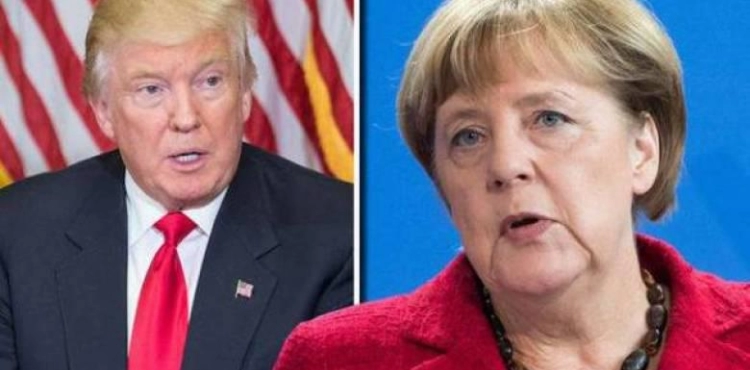German Chancellor Angela Merkel on Friday expressed her reservations about not interfering in US policy to denounce President Donald Trump´s statements against female minority Democrats, saying it was "America´s greatness."
"I want to firmly distance myself from these attacks and I am in solidarity with the women who have been attacked," Merkel said at her traditional summer press conference.
The chancellor saw that the power of the United States lies precisely in that "people of different nationalities make up the American people."
Therefore, Trump´s remarks against the Democratic female deputies were "contrary to what makes America great," in a vehement criticism of the president´s motto: "Make America great again."
Merkel´s position contrasts with her usual behavior as she avoids commenting on issues that have been addressed to the domestic politics of other countries. However, the issue of racism is very sensitive in Germany, which is keen to emerge as an example of accepting others in the light of its Nazi past.
When asked to Merkel, she seemed to have to take a stand, especially as other European officials also announced positions.
Trump has repeatedly attacked Germany in general and Merkel in particular even before taking office in the White House, targeting the generous policy of immigration adviser, the country´s surplus economy and military spending, which he considers insufficient.
Merkel called on the US president immediately after his election to defend Western democratic values. That statement led to her declaration as a "leader of the free world" in part of the American press.
The German chancellor´s criticism is also criticized by many American officials and foreign leaders who are also displeased with the way Trump called on Congressional representatives to return from where they claimed to "deny" the United States and that "all they do is grumble."
British Prime Minister Theresa Mae has condemned the statements as "totally unacceptable," including the two candidates for succeeding her as prime minister, current Foreign Secretary Jeremy Hunt and former foreign minister Boris Johnson, although he is highly regarded by the president.
New Zealand Prime Minister Jacinda Ardenne also condemned the remarks. "We think our parliament should be a representative place ... It should be similar to New Zealand, to be made up of different cultures and ethnicities," said New Zealand Prime Minister Jacinda Ardenne.
On Tuesday, the House of Representatives voted in favor of a resolution condemning Trump´s "racist" statements.
In a series of tweets and statements, Trump considered that women democrats such as Alexandria Ocasio Cortez (New York) and Elhan Omar (Minnesota), one of the first two women in the House of Representatives, do not like the United States and would rather go home.
On Thursday, Elhan Omar, who was targeted by the slogan "Bring her back to her country" during a rally for the US president, responded by describing Trump as a "fascist."
In the face of the campaign of denunciation, the seventeen billionaire tried to convince himself of his supporters´ slogan that "I did not like this."
However, he did not return to his statements, and took a stronger tone towards the Democrats in general.
"The vote for a Democrat in 2020, whatever, means voting for the rise of radical socialism, to destroy the American dream, and to say it clearly: to destroy our country," he said on Wednesday night.
"This is outrageous, it´s cowardly, it´s xenophobia, it´s racist, it´s a dirty presidential job," said a candidate in the Democratic presidential primaries, Camala Harris.
Some Republican voices also rose, but the party´s celebrities rebelled, belittling the president´s remarks.












